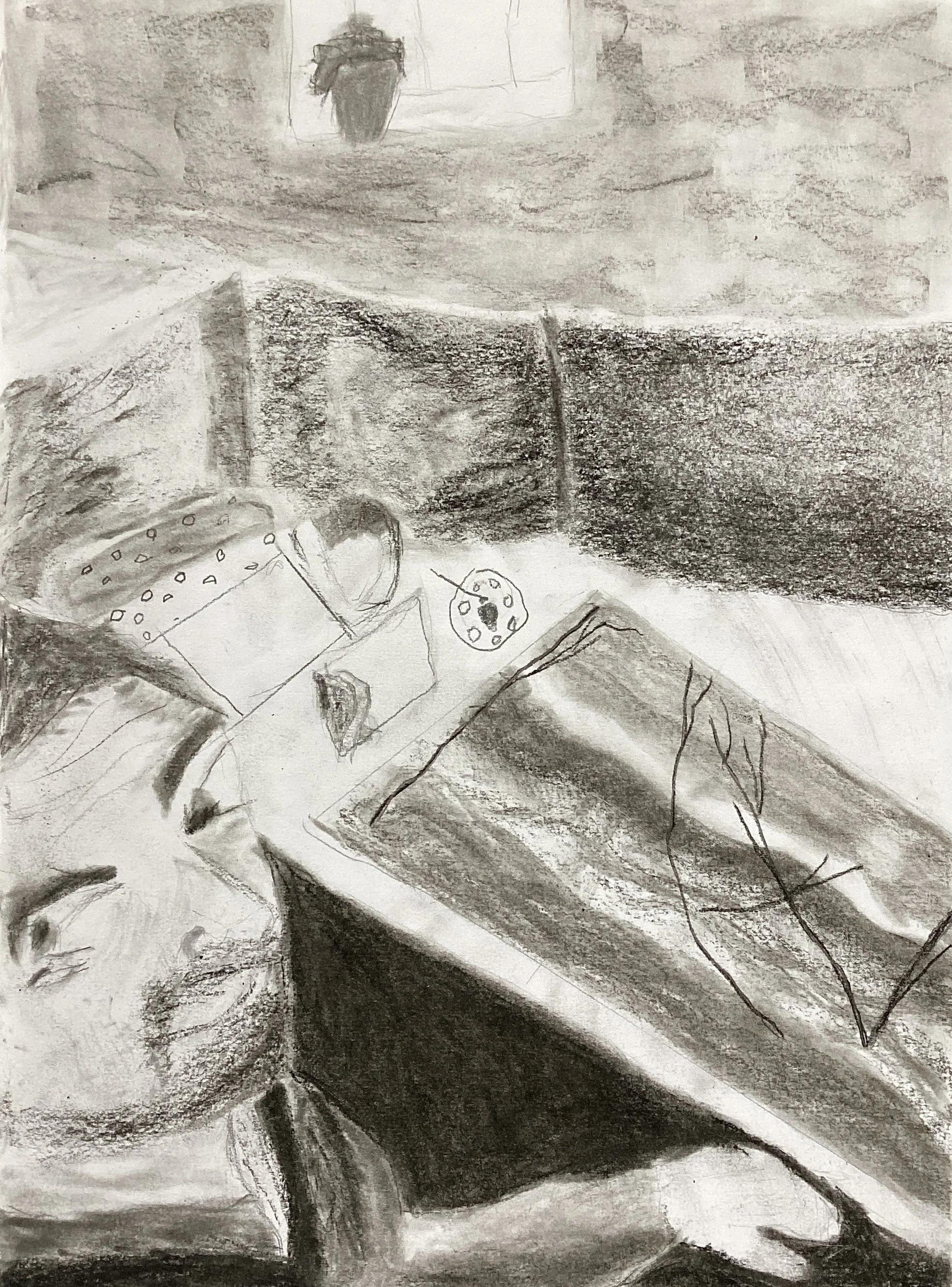Unveiling the ABI Waiver Program: Bridging the Awareness Gap
Despite the vital support the Connecticut Acquired Brain Injury (ABI) Waiver program offers, there is a concerning lack of public awareness. This gap leaves many brain injury survivors without access to essential services, jeopardizing their recovery and quality of life. Understanding the reasons behind this lack of awareness and addressing them is crucial to ensuring that more individuals benefit from the support they need.
Growing Concerns with Self-Directed Care Under the Connecticut ABI Waiver Program
The recent shift towards self-directed care for individuals on the Connecticut Acquired Brain Injury (ABI) Waiver Program has raised significant concerns within the community. This change, which coincides with GT Independence taking over subsidiary responsibilities from Allied, presents numerous challenges that could compromise the quality and consistency of care for individuals with brain injuries. While self-directed care offers the promise of increased autonomy and personalized services, it also introduces critical risks related to the quality, experience, and oversight of staffing. Moreover, it places an undue burden on individuals and their families, potentially leading to severe gaps in care.
Navigating Employment Loss After a Brain Injury: Lessons from Emilia Clarke’s Journey
Experiencing a brain injury can be life-altering, affecting various aspects of daily life, including employment. The sudden shift from being a capable, productive individual to facing significant challenges can be overwhelming. Actress Emilia Clarke's experience sheds light on this difficult journey, offering valuable insights and hope for brain injury survivors.
Understanding the Impact of Traumatic Brain Injuries in Equestrian Sports and the Importance of Support Services
Traumatic brain injuries (TBIs) are a serious concern in many sports, including horse riding. A recent article by NPR sheds light on the prevalence of TBIs among equestrians, highlighting the need for increased awareness, preventive measures, and comprehensive support for those affected. As we delve into this topic, it's crucial to recognize the valuable services provided by organizations like The Supported Living Group, which offers essential brain injury support services through their ABI Waiver and private pay programs in Connecticut.
Understanding Aphasia After a Brain Injury: Highlighting June as Aphasia Awareness Month
Traumatic brain injuries (TBIs) can lead to a host of complications, one of the most profound being aphasia. Aphasia is a language disorder that affects a person’s ability to communicate, significantly impacting their quality of life. Understanding the potential impact of aphasia after a brain injury is crucial for providing appropriate support and care.
Understanding Emotional Symptoms After Traumatic Brain Injury (TBI) and Effective Strategies to Counter Them
Traumatic Brain Injury (TBI) can have profound and lasting impacts on an individual's emotional well-being. For those seeking community-based support services in Connecticut, such as The Supported Living Group's ABI Waiver and Private Pay programs, understanding these emotional symptoms and knowing effective strategies to manage them is crucial.
Recognizing the Signs: 8 Symptoms That Indicate Your Child May Be Suffering from a Brain Injury
Brain injuries in children can be life-altering and difficult to detect. Early identification and intervention are crucial. The Supported Living Group, a leading provider of private pay and ABI Waiver community-based brain injury support services in Connecticut, is here to help you understand the top symptoms that may indicate your child is suffering from a brain injury.
Understanding ABI Waiver Services: The Top 5 Things Not to Say to a Brain Injury Survivor
When it comes to supporting brain injury survivors, words matter. The Supported Living Group, a leading provider of ABI Waiver Services in Connecticut, emphasizes the importance of compassionate and informed communication. Here, we outline the top 5 things not to say to a brain injury survivor, highlighting how our services foster a supportive environment for recovery and empowerment.
The Vital Role of Social Engagement in Brain Injury Recovery: Insights from The Supported Living Group's ABI Waiver Support Services
Social engagement plays a crucial role in the recovery journey of brain injury survivors. At The Supported Living Group (SLG), we recognize the significance of fostering social connections as part of our ABI Waiver support services in Connecticut. In this blog post, we'll explore why social opportunities are essential for brain injury recovery and how SLG empowers survivors through community engagement.
Addressing the Needs of Connecticut's Elder Orphan Population: The Role of Community-Based Care Agencies
As Connecticut's elder population continues to grow, a significant concern arises: the rising number of elder orphans, individuals aging without family support or caregivers. In this blog post, we delve into the challenges faced by elder orphans and highlight the crucial role of community-based care agencies like The Supported Living Group in supporting these individuals to remain in the community
Nourishing Brain Health: The Impact of an Anti-Inflammatory Diet After a Brain Injury
Following a brain injury, prioritizing nutrition becomes paramount in supporting recovery and overall well-being. An anti-inflammatory diet, rich in nutrient-dense foods, has emerged as a promising approach to mitigate inflammation and promote healing post-brain injury. In this blog post, we delve into the significance of adopting an anti-inflammatory diet and its potential benefits for individuals navigating the challenges of brain injury, particularly in Connecticut and neighboring states.
"Digging Deeper" – An Interview From Guest Writer Gregg Pastore
As a survivor of brain injury who utilizes services associated with the Connecticut Department of Social Services ABI Waiver program, I was interested in finding out more about those who help develop and oversee my support services. Often there is a divide between providers and those they support and in this post I ask The Supported Living Group’s Executive Director, Jamie Arber, to open up about himself to help me better understand what motivates him to support me and others in the brain injury community.
Navigating the Connecticut Money Follows the Person Program: A Guide for Brain Injury Survivors
Are you or a loved one living with a brain injury in Connecticut and seeking to transition from institutional care to community-based living? The Connecticut Money Follows the Person (MFP) Program may be the solution you've been looking for. In this blog post, we'll explore how brain injury survivors can effectively navigate the MFP Program to achieve greater independence and quality of life.
The Intersection of Brain Injury and Substance Dependence: Challenges and Solutions in Community-Based Services
In recent years, the opioid epidemic has emerged as a significant public health crisis, affecting communities across the nation, including here in Connecticut. Amidst this crisis, another issue often overlooked is the link between substance dependence and brain injury. As providers of community-based support services, it's imperative to understand the complexities that arise when serving individuals with a history of substance dependence alongside a brain injury. In this blog post, we'll explore the challenges associated with this intersection and discuss strategies for effectively addressing these specialized issues.
Understanding Why Brain Injury Survivors Are Vulnerable to Telephone and Online Scams
Brain injury survivors in Connecticut and across the country often face numerous challenges as they navigate life post-injury, including vulnerability to telephone and online scams. In this blog, we explore the reasons behind why brain injury survivors are particularly susceptible to falling victim to scams in the digital age.
Navigating Recovery: Understanding Connecticut's ABI Waiver Program for Brain Injury Survivors
Sustaining a brain injury can be a life-altering experience, presenting numerous challenges that extend far beyond the initial injury. In Connecticut, individuals facing the aftermath of a brain injury often encounter barriers to accessing the healthcare they desperately need. In this blog, we delve into the unique challenges faced by brain injury survivors in Connecticut and explore strategies for overcoming these barriers to achieve optimal health and well-being.
Addressing the Concerns of Missed Screenings for Brain Injuries in Children: A Call to Action
As healthcare professionals dedicated to the well-being of our youngest patients, it is imperative that we address a concerning trend: many children with symptoms of brain injuries and concussions are missing out on vital screenings. This issue, highlighted in a recent national study, underscores the urgent need for heightened awareness and proactive measures to ensure every child receives the necessary care.
Understanding Sleep Disturbances After Brain Injury: Causes, Impacts, and Management Strategies
Sleep plays a vital role in our overall health and well-being, serving as a crucial time for rest, recovery, and cognitive processing. However, individuals who have experienced a brain injury often face significant challenges with sleep, experiencing disturbances that can exacerbate existing symptoms and impact daily functioning. In this blog post, we'll explore the complex relationship between brain injury and sleep disturbances, delve into the underlying causes, and discuss strategies for managing sleep issues effectively.
“Just Letters” A Guest Blog About Brain Injury - by Greg Pastore
It didn’t occur to me until days later that I had been in a ski accident and was totally paralyzed. A merciful doctor diagnosed me with locked-in syndrome. A blot clot formed in my neck, broke free, and entered my brain stem causing an ischemic stroke; I was lucky to be alive. He didn’t need to explain further – I was trapped in my body or ‘locked-in.’ What hope did I have to live a normal life? I’d ruminate on this until the words lost their meaning.
Navigating the Intersection: Trauma-Informed Care in Brain Injury Support Services
In the landscape of brain injury support services in Connecticut, the integration of trauma-informed principles is becoming increasingly crucial. Trauma, whether stemming from the injury itself or pre-existing experiences, can significantly impact an individual's journey toward recovery. In this blog post, we'll explore the imperative for incorporating trauma-informed care into brain injury support services and the transformative benefits it offers.




















